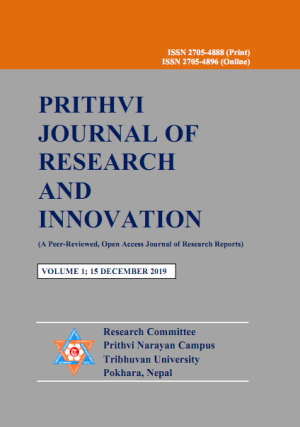On Native Language Use in Tertiary Level English Classes
DOI:
https://doi.org/10.3126/pjri.v1i0.29888Keywords:
Conditions, causes, consequences, foreign language, native languageAbstract
This study focuses on the tertiary level classes to explore the contexts of learners’ native language (NL) in English as a foreign language (EFL) classes. The main objective of the study is to explore the contexts and consequences of the NL use in EFL classes. To achieve this objective, descriptive research design was adopted. The sample population consists of forty teachers teaching English in university classes. The study collected and analyzed the data obtained from open and close ended questions. Most respondents agreed in the use of the NL for substantiating learning experiences, enhancing learner-centered approaches, and bridging gaps between the target and the native languages. The researchers also discovered that the NL use inhibited fluency, and use of the FL; thus hindered developing pragmatic and discourse competence in the learners. Notwithstanding this fact, the NL use created learner-friendly setting, enhanced strong bond between the teachers and the learners, and developed comprehensibility in the learners. These pros and cons imply that the NL should judiciously be used in the EFL classes.
Downloads
Downloads
Published
How to Cite
Issue
Section
License
© Centre for Research and Innovation (CRI), Prithvi Narayan Campus (TU)

